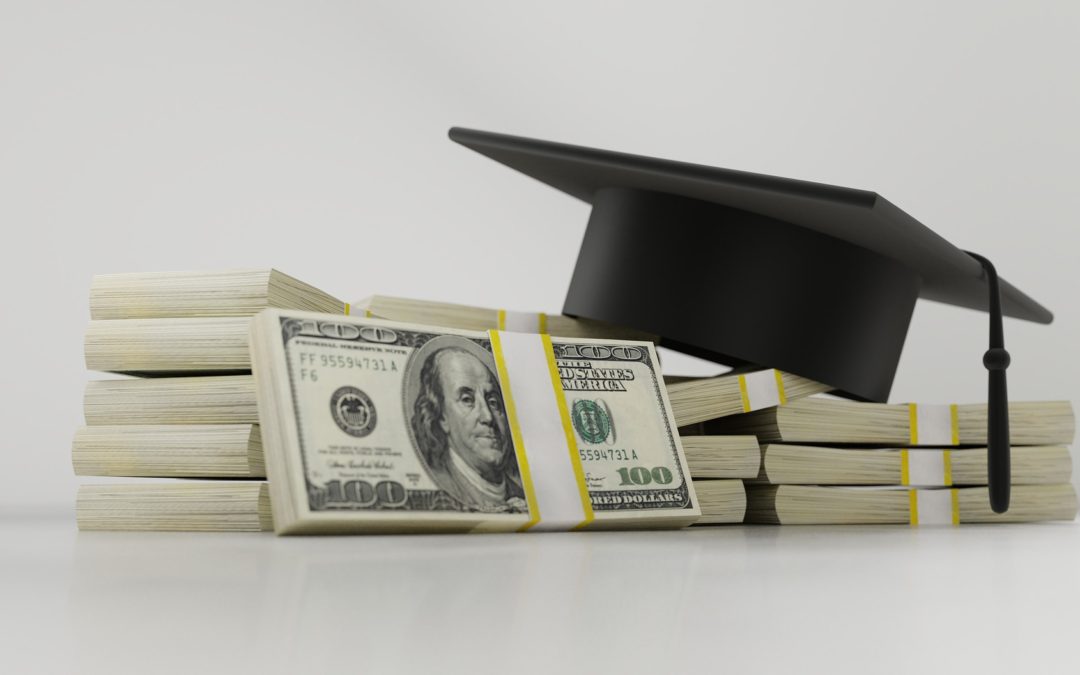Last week, the White House announced a much-anticipated student loan forgiveness plan. The plan lays out debt forgiveness of $10,000 for individuals earning less than $125,000 ($250,000 for married couples). Pell Grant recipients are eligible for an additional $10,000 in forgiveness.
While the actual loan forgiveness portion of the announcement has received most of the buzz, the program actually has two other components. One of these components extends the repayment pause (put into effect March 13, 2020) until December 31, 2022. The other is meant to make remaining and future debt less burdensome by:
- Requiring payments of no more than 5% of discretionary monthly income on undergraduate loans (previously 10%).
- Raising the amount of income considered non-discretionary (essentially shielding more income from the income driven payment computation).
- Forgiving loan balances of $12,000 or less after 10 years of payments. Previously, this provision kicked in after 20 years of payments.
- Covering a borrower’s unpaid monthly interest, so that a borrower’s loan balance will not grow as long as they make their monthly payments (even if income driven payments are $0).
More information about these provisions as well as the opportunity to sign up for notifications of additional details can be found here.
Public Response
Naturally, the announcement garnered an outpouring of both support and opposition. Objections spanned concerns about legality, potential economic impact and even that the measures don’t go far enough. Some question what precedent it sets for future government forgiveness and implications for personal responsibility. Others point out that loan forgiveness doesn’t actually do anything to correct the root problem of unsustainable increases in educational costs and predatory loan practices.
The objection that stood out the most to me this past week, though, is that loan forgiveness is simply not fair. Opponents argue that it’s a slap in the face for blue-collar workers and college graduates who obtained their education the “right way” (insert your definition here). Footing the bill for this debt forgiveness, they point out, will presumably fall on the shoulders of these same taxpayers.
The “Right Way”
As someone who meets the criteria for obtaining an education the “right way,” I can relate to this fairness objection better than many. Every dollar of my undergraduate and graduate education was paid out of my own pocket. I was not the beneficiary of 529 savings, employee reimbursement programs, grants or scholarships.
I afforded college, and avoided student loans, by opting for non-traditional routes such as transferring community college credits into four-year schools, taking online courses and going to night school while working full time. Through the process, I got married and had kids. I missed out on the “magical” college campus experience, but the end of my educational payments coincided exactly with the reception of my diplomas.
Would I have accepted $10,000 had it been offered to me? Absolutely. Knowing what I do now, would I opt to go back and pay years of student loan payments and interest to gain the “advantage” of $10,000 forgiven today? Absolutely not. For me, the advantage of not having student loan debt was well worth the personal investment and sacrifice required to avoid it.
Is It Fair?
In light of many other academic journeys similar to my own, is debt forgiveness fair? Decidedly not. But I question whether it needs to be. After all, if we grade on fairness alone, would any government program pass this criterion? The “I had it hard, so you should too” mentality is one I’ve encountered numerous times in my career, and it’s not one I care to emulate personally. Instead, I’m happy for the estimated 43 million individuals the forgiveness may benefit – even more so for the 20 million whose debt could be totally eliminated.
Having three young boys means the “fairness” refrain plays on a loop in our house. And yet, life is seldom fair. There are people with profoundly greater advantages than me, and people with profoundly greater disadvantages. In raising my boys, I want to instill in them that fairness isn’t actually something we should always expect or even want. There are times we can be grateful we don’t receive the fairness we deserve. We choose whether we focus on the advantages or disadvantages in life. Clinging to the disadvantages will only serve to ensure that we remain just that – disadvantaged.



I always appreciate your perspective and agree with you full heartedly on this one Jonathan. It’s sad to me that some can’t just want it better for others even if they didn’t have the same. Like you said, it’s the reason we stay disadvantaged as a society. Wishing you all the best.